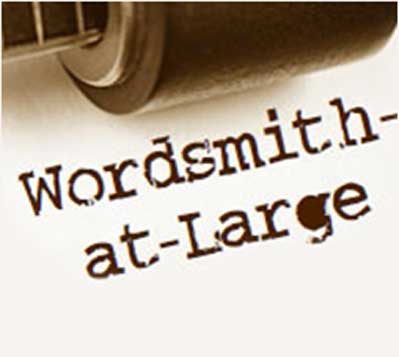What do Aaron Burr, Elbridge Gerry, John C. Calhoun, Richard M. Johnson, John C. Breckinridge, Hannibal Hamlin, Thomas Marshall, Henry Wallace, and Spiro Agnew all have in common? Every one of them was, at one point in our history, a heartbeat away from being President of the U.S. It’s probably very fortunate for the country, given some rather colorful episodes in which they were embroiled, that none of these vice presidents ever acceded to the throne.
Why is it important to know more about some of their shenanigans? Because eight other VP officeholders DID become president. That’s eight out of 45, a rather high percentage. (Yes, Biden is #46, but remember Cleveland was #22 and #24.) And in 2024, presumed Republican nominee Donald Trump may end up a convicted felon, and presumed Democratic nominee Joe Biden will be 82 years old on Inauguration Day 2025. Not to be pessimistic or maudlin about it, but it does seem plausible, if not probable, that the next Veep might become president at some point within the next four years.
According to reports, Trump is currently auditioning running mates. On the other side, Biden’s current Vice President has possibly the lowest approval ratings ever. For many voters, the decision for whom to vote might hinge on who the back-up is.
From what I read some historians say Aaron Burr was one of the best presiding officers the Senate has ever had. But then, as you no doubt know, he went and killed Alexander Hamilton in a duel, and was later charged with treason for supposedly engineering a plot to attack Mexico and/or create his own empire out west.
Elbridge Gerry was James Madison’s third choice to run on his ticket after two others turned down the offer. As a delegate to the Constitutional Convention, he had refused to sign the Constitution because, apparently, he didn’t like the way it was written. Elbridge is remembered to this day because his name is associated with gerrymandering, a moniker that stuck after he redrew congressional districts to his advantage while Governor of Massachusetts.
In order to preserve slavery in the South, John C. Calhoun (under John Quincy Adams), proposed that any one state be allowed to nullify any act of Congress. (His proposal was soundly defeated by both Northerners and Southerners.) Richard Johnson (Martin Van Buren) was propelled to the VP position by killing the Shawnee chief Tecumseh. In office, he wanted to send an expedition to the North Pole to drill to the center of the Earth because he thought the planet was hollow. Adding fuel to the fire, it seems someone in the Senate also characterized him as “the most vulgar man of all vulgar men. Van Buren ended up disliking Johnson so much he actually ran for a second term without a vice president.
John C. Breckinridge (James Buchanan) had a city in Colorado named for him. It’s spelled slightly differently, probably due to the fact that it seems he was forced to leave the country to avoid being charged with treason. The story goes he went to Florida and borrowed a small boat. It was attacked by pirates, he ended up in a dinghy, a storm blew down the mast, and he bobbed around in the Caribbean for a while before ending up in Cuba.
Hannibal Hamlin (Abraham Lincoln) reportedly spent most of the Civil War with his family in Maine. And he’d never met Abe before his nomination. Thomas Marshall (Woodrow Wilson) felt his job was pointless, telling a bodyguard that no one ever shoots a vice president. Adding to his obvious sense of humor, he apparently once sent the stoic Wilson a book inscribed, “From your only vice.”
I read that Henry Wallace (FDR) was once described as “a person answering calls the rest of us don’t hear,” and that his greatest goal in life was “to make the world safe for corn breeders.” When Harry Truman became President, he and Henry (then Commerce Secretary) didn’t exactly see eye to eye on Russian foreign policy leading some of Wallace’s foes to term him a “Stalinist stooge.”
And then there’s Spiro Agnew (Nixon) who lambasted critics with colorful alliterative phrases such as “supercilious sophisticates,” “pusillanimous pussyfooters,” and “nattering nabobs of negativism.” Although obviously good with words, while vice president, he was indicted for bribery for nefarious deeds that happened when he had been Governor of Maryland and resigned his high office.
That really only scratches the surface of the people who could have been president had fate darkly intervened. Which is why, since We the People have already spoken regarding which names will be first on the ballot come November, it might well behoove all of us to take a good hard look as to who’s listed second. You never know what might happen.
©MMXXIV. William J. Lewis, III – Freelance Writer


Leave A Comment